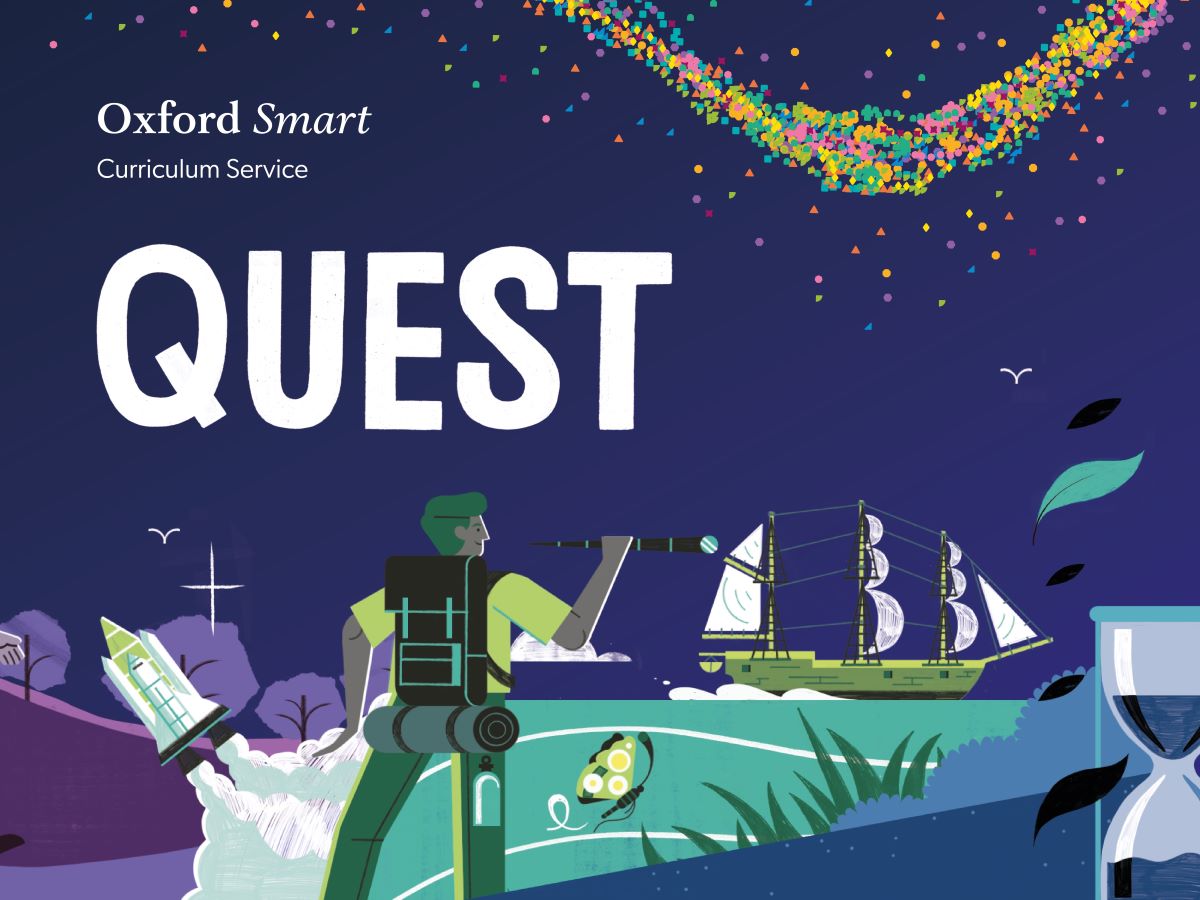Oxford Smart Quest review by Haili Hughes, Director of Education and Principal Lecturer
Through the Oxford Smart Curriculum for English, Oxford Smart Quest offers a thorough and detailed curriculum for Key Stage 3 that busy teachers could use with little preparation time to read and familiarise themselves with content. This is due to the fact that the curriculum maps and pathways are clear and concise and break units of learning down into easily understandable skills and blocks which complement one another. The units in each half term build one from one another, with skills and knowledge being built on sequentially and the level of challenge increasing as students build more sophisticated mental models. The units also move from more generic knowledge, such as genre to more granular focus, such as conventions of particular types of narrative and non-narrative forms.
In each unit, the core skills of reading, writing, and speaking and listening are covered discreetly but also under the same umbrella as ‘Big Questions,’ which are thematically linked. Research suggests that the best writers are also avid readers and so not explicitly splitting these skills works well, as it gives them the reciprocal time that they need to develop properly.
The tasks and assessments covered link well with GCSE skills and lay the foundation for these assessments without subjecting students to endless repetition of GCSE style questions; this ensures that students receive a broad and well-balanced curriculum, while also being given exposure and practice to the key ideas and skills they will need at Key Stage 4. This is particularly evident in the unit on literary movements in Year 8, which exposes students to the great debates and disciplinary history of the subject, which will be so useful when situating their literature texts at Key Stage 4 and beyond in terms of their socio-historical and political contexts.
The resources available to teachers are comprehensive and the way that the pathway is split into the ‘what’ and ‘how’ is useful for formative assessment, as teachers will have a clear understanding of what essential knowledge and skills students should be able to exhibit at each checkpoint. The useful mini-checkpoints for retrieval, available on Kerboodle, also assist with this.
In addition, the sources are interesting and give students the opportunity to read a wide variety of different types of texts, including those from other cultures. The word banks on the worksheets also provide students with a useful scaffold for unfamiliar vocabulary they may encounter.
The front-of-class PowerPoints are well-structured, easy to follow and clearly take into account extraneous cognitive load. Teachers could adapt these themselves for the context of their own students. To go alongside the PowerPoint resources, the lesson guidance is incredibly clear. I was pleased to see that there is a ‘stretch yourself’ section included in the lesson guidance as I had felt that the lessons are very easy and more able students might not feel challenged. In addition, the audio brings the poems and extracts a bit more to life so may make the lessons a bit more interesting and less formulaic.
A particular strength of the package is the ready to go assessment rubrics. These are clear and contain very helpful exemplars of each level. It is great that all the resources are editable so that teachers can easily adapt them for their classes. The writing assessments are also linked to a similar format students access at GCSE, so it also provides them with valuable deliberate practice opportunities. The explicit assessment on grammar and spelling is also valuable. The Markbooks enable teachers to keep track of where their students are and offers a helpful tool for question level analysis so that teachers can adapt their instruction.
Overall, the Oxford Smart Quest offers a ready-made, high quality curriculum that busy teachers could use with little adaptation. It offers a good starting point for teachers, with little need of extra CPD for them to be able to teach it effectively, aside from the lesson guidance provided. A curriculum like this could be particularly useful for novice teachers but experienced teachers may want to adapt it.
About the author:
Haili Hughes is Director of Education at IRIS Connect and a Principal Lecturer at the University of Sunderland. She was a teacher and leader in secondary schools for 16 years. She works for the DfE in ITT policy, facilitates the ECF and NPQs, has written 7 education books and speaks all over the world.

